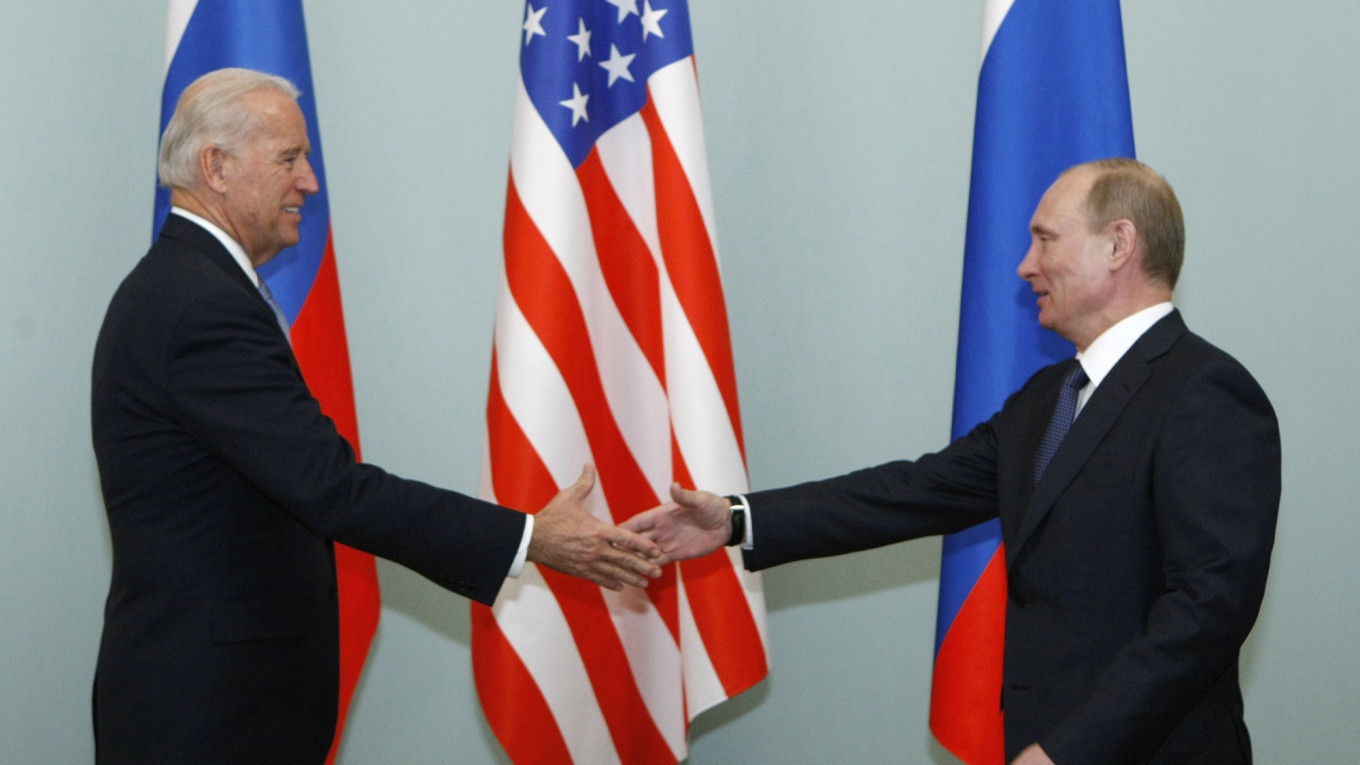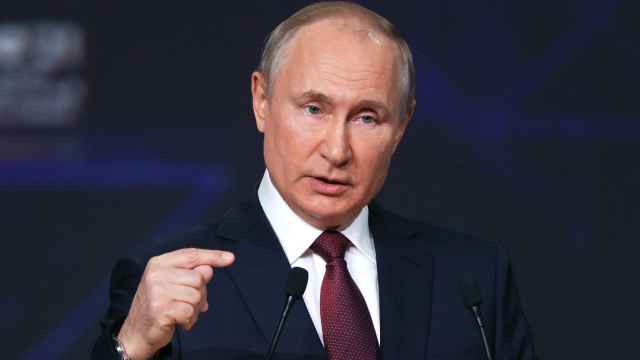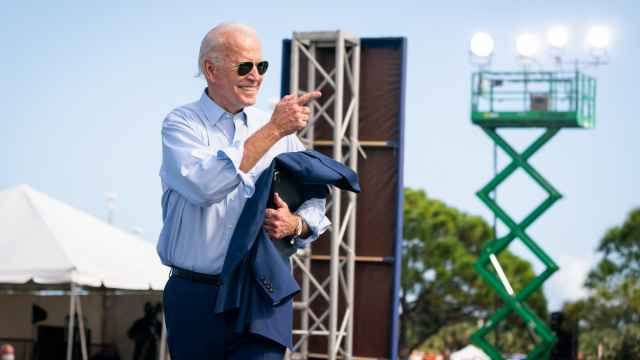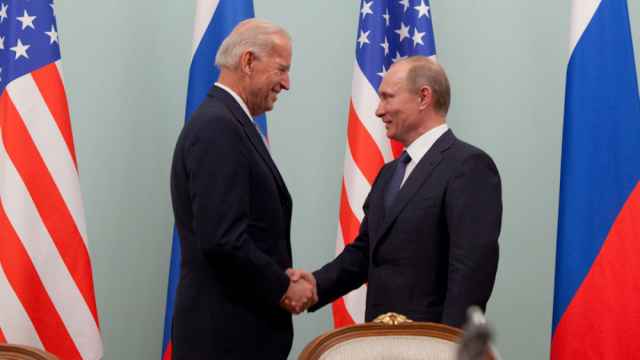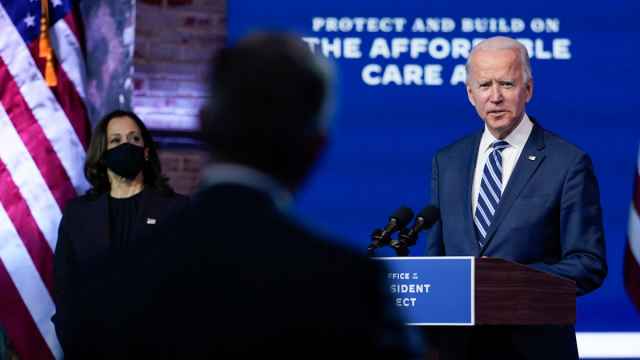Russian-U.S. relations are again in tatters.
U.S. President Joe Biden unexpectedly answered in the affirmative to ABC TV host George Stephanopoulus’ question as to whether he considered Russian President Vladimir Putin a killer.
Biden promised new sanctions in the near future in response to Russian interference in the 2020 U.S. elections and Moscow summoned its ambassador to Washington home for consultations “in order to analyze what to do and in which direction to move in the context of relations with the United States”, as well as “to determine ways to correct the critical condition of Russian-U.S. relations”.
In diplomatic practice, this is called a “demarche”, a demonstration of strong dissatisfaction with a political partner’s actions and statements, but without any concrete negative consequences — yet.
Russia has not formally recalled its U.S. ambassador, but if the situation deteriorates further, he might remain in Moscow indefinitely.
In fact, this is one of the scenarios by which the second stage of U.S. sanctions over Russia’s use of chemical weapons — that the Biden administration announced in early March — would “lower the status of diplomatic relations” with Moscow.
What signal does it send?
The key question is whether Biden’s unexpectedly harsh statement about the Russian president was simply another example of his well-known “linguistic intemperance”, or a calculated and deliberate escalation of his personal conflict with Putin — a direct challenge that the Kremlin would not be able to ignore.
Although Biden did not know which questions he would be asked beforehand, he seemed to know what he was doing when he paused to think about it before nodding in the affirmative.
That being the case, the question is: What signal was Biden trying to send? First, it is unlikely the two leaders will meet in person anytime soon. They might cross paths at the G20 summit, if it is held in person rather than online, but there will be no summit of the five permanent member states of the UN Security Council, as Putin had sought.
Nor will there be a bilateral summit such as Trump held with Putin in Helsinki. In fact, Biden’s comments are a continuation of his strategy of reducing interaction with Russia to a narrow set of topics that interest Washington. As the U.S. president noted in the interview, it is possible to “walk and chew gum at the same time”.
It is also a signal to other G7 leaders and NATO countries that they should minimize their personal contacts with the Russian leader.
After all, the opinion of the U.S. president carries weight. Still, each capital will make its own decision. French President Emmanuel Macron has not yet canceled his visit to Russia and remains eager to be friends, and the new Japanese Prime Minister, Yoshihide Suga, who has declared the need to meet with Putin to continue the dialogue on a peace treaty, might even attend the Eastern Economic Forum in Vladivostok this September.
In itself, Biden’s statement does not indicate any tough new anti-Russian actions. It is more a “framing” device, albeit an extremely unpleasant one.
For now, Moscow will pursue a restrained foreign policy response to “Biden’s slam” because it has not yet given up hope of establishing a stable dialogue on, at least, arms control and, possibly, countermeasures in cyberspace.
U.S. National Security Advisor Jake Sullivan continues to establish a working dialogue with Russian Security Council Secretary Nikolai Patrushev — although not with its Deputy Chairman, Dmitry Medvedev.
Sullivan calls Patrushev every month and plans are underway for the two to meet. U.S. Secretary of State Antony Blinken has invited Russian Foreign Minister Sergei Lavrov to attend a conference on Afghanistan in April. It is also unlikely that Putin will criticize Biden personally, and if invited to meet with him, Putin will undoubtedly accept.
The Kremlin’s domestic reaction, however, promises to be much tougher. As the well-informed political analyst Alexei Chesnokov notes in his Telegram channel, “No compromise is possible here. Halftones are dangerous. That part of the political elite that does not publicly express its support for Putin risks sooner or later being counted as traitors”.
Report on interference
In his interview, Biden was responding to a question concerning the recent CIA director’s report titled Foreign Threats to the 2020 U.S. Federal Elections.
The classified report was submitted to Congress on Jan. 7, 2021 and contained claims that the Trump administration had tried to influence the intelligence findings in its favor.
The U.S. intelligence report draws a clear distinction between election influence and election interference.
The first involves actions by foreign players to shape public attitudes that affect the candidates’ positions and, possibly, to influence voter behavior through a de facto negative PR campaign against one of the candidates and a positive campaign in support of the other.
Election interference, however, refers to foreign states acting in cyber space to affect the infrastructure of elections, including voting lists, vote-counting procedures, the input of voting results, etc.
Russia’s actions belong to the first category. They are generally viewed as instruments of information warfare and a means by which a state can project its power abroad — that is, within certain limits, as “legitimate state instruments”.
The report contains little new information concerning Russia’s actions in the 2020 elections. U.S. intelligence agencies began talking about Russian interference one year ago, including noting Moscow’s interest in Trump’s re-election. It found attempts to influence the election against Biden as early as the Democratic primaries, when the FBI informed Bernie Sanders that “Russian actors” were working for his defeat of Biden.
In Aug. 2020, U.S. National Counterintelligence and Security Center Director William Evanina stated officially that Moscow was trying to discredit Biden’s candidacy as a representative of the “anti-Russian establishment”.
He said that, towards this end, Russian special services were working through what he alleged was their contact in the Verkhovna Rada of Ukraine, Andriy Derkach, by distributing specially edited recordings of telephone conversations between Vice President Biden and Ukrainian President Petro Poroshenko, and by pushing these materials through President Trump’s allies in the U.S.
The CIA even “leaked” its assessment that Vladimir Putin personally directed the campaign to discredit Biden. In September, the U.S. Treasury Department added Derkach to the sanctions list as a Russian intelligence agent involved in the operation to interfere in the U.S. presidential election. In January of this year, the Treasury Department imposed sanctions on seven more Ukrainian citizens who participated in Derkach’s operation to spread disinformation against the Bidens.
A relatively new point in the report is the high degree of confidence that Putin personally authorized this operation to influence the U.S. elections by using the “Ukrainian channel” to provide compromising information on Biden and that he generally “had purview over the activities of Andriy Derkach”.
What’s more, the intelligence agency believes Moscow used its “Ukrainian channel” not only to influence the U.S. elections, but also to reduce U.S. aid to Ukraine, essentially attempting to “kill two birds with one stone”.
Whoever was behind it, “Ukrainian channel” did its job well, delivering the necessary information to influential Trump associates Rudy Giuliani and Roger Stone, even as U.S. intelligence warned the president that Russian intelligence was working with them.
The Ukrainian “comrades” sent Congressional leaders reams of documents with information allegedly discrediting Biden and his son, causing hysteria in the democratic camp and compelling Biden’s campaign headquarters to launch a counteroffensive and Biden himself to make the tough statement that if we were elected, he would take decisive measures against countries interfering in U.S. elections.
So, it turns out that he promised such measures long ago and really said nothing new in his ABC interview. Also back in September, Democrats had demanded sanctions against Russia in response to the Derkach group’s activities.
Understanding Moscow’s motives
The U.S. intelligence report attempts to explain why the Kremlin decided to interfere in a U.S. election a second time, even though similar interference in the 2016 election had caused Russian-U.S. relations to collapse.
It argues that Russian leaders felt Biden’s election ran counter to Russia’s interests, including Biden’s commitment to the concept of “American exceptionalism” that the Kremlin rightly considers dangerous.
U.S. intelligence officials believe with a high degree of confidence that Moscow wanted Trump re-elected for a new term, despite the fact that some elements of his policy were directed against Russia.
As the election approached, however, the Kremlin realized how problematic a Trump victory would be and sent signals that it was ready to work with Biden.
Moscow believed that its attempt to influence the election in favor of Trump was a proportionate response to Washington’s past and future anti-Russian actions, as well as a way to undermine the United States’ international standing and influence Washington’s foreign policy.
It suggests that Russian leaders were probably willing to accept the risks of operations to influence U.S. elections in part because they believe that the U.S. interferes similarly in Russia’s elections and that this is simply part of geopolitical competition.
Russian leaders probably also believed that the intervention posed little risk to bilateral relations, that were already at a low point. Of course, it would be interesting to know exactly how leaders made the decision to intervene, but it is unlikely they asked the opinion of the Foreign Ministry.
The implications of the report in terms of sanctions will become evident next week. Bloomberg reports that the sanctions will affect the Russian leadership, although most of those individuals are already targeted by sanctions.
Russian businesspeople are unlikely to be targeted, although previous sanctions singled out Oleg Deripaska and Viktor Vekselberg over the issue of interference in U.S. elections. The decree also provides for a separate stage of sectoral sanctions, but judging by the rather soft wording of the intelligence report, this does not yet apply to Russia.
A Russian version of this article was first published by the Republic outlet.
A Message from The Moscow Times:
Dear readers,
We are facing unprecedented challenges. Russia's Prosecutor General's Office has designated The Moscow Times as an "undesirable" organization, criminalizing our work and putting our staff at risk of prosecution. This follows our earlier unjust labeling as a "foreign agent."
These actions are direct attempts to silence independent journalism in Russia. The authorities claim our work "discredits the decisions of the Russian leadership." We see things differently: we strive to provide accurate, unbiased reporting on Russia.
We, the journalists of The Moscow Times, refuse to be silenced. But to continue our work, we need your help.
Your support, no matter how small, makes a world of difference. If you can, please support us monthly starting from just $2. It's quick to set up, and every contribution makes a significant impact.
By supporting The Moscow Times, you're defending open, independent journalism in the face of repression. Thank you for standing with us.
Remind me later.



